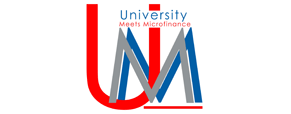 The 12th UMM Workshop on 'Enhancing food security & resilience to climate change: What role for microfinance?' will take place at the University of Bergamo, Italy, 11-12 June 2015.
The 12th UMM Workshop on 'Enhancing food security & resilience to climate change: What role for microfinance?' will take place at the University of Bergamo, Italy, 11-12 June 2015.
Highly unpredictable and extreme weather events are amongst the consequences of climate change. In low-income countries, smallholder farmers that mostly rely on rain-fed agriculture for their subsistence and food supply chains are particularly exposed to these potentially disastrous events. Consequently, microfinance institutions (MFIs) that offer their financial services to smallholder farmers are affected by climate change as it entails a systemic and non-diversifiable risk. In order to effectively tackle the challenges posed to their clients by climate change, the MFIs can, for example, promote biodiversity and income diversification through the supply of specific financial products and training activities. At the same time, risk transfer mechanisms such as insurances for weather and disaster risk reduction are key strategies at the micro and meso levels. From the institutional perspective, the MFIs should implement appropriate risk management strategies whereas donors and policy makers can contribute with technical assistance, funding and emergency liquidity facilities.
For more information visit http://www.universitymeetsmicrofinance.eu/ or contact umm@planetfinance.org
Highly unpredictable and extreme weather events are amongst the consequences of climate change. In low-income countries, smallholder farmers that mostly rely on rain-fed agriculture for their subsistence and food supply chains are particularly exposed to these potentially disastrous events. Consequently, microfinance institutions (MFIs) that offer their financial services to smallholder farmers are affected by climate change as it entails a systemic and non-diversifiable risk. In order to effectively tackle the challenges posed to their clients by climate change, the MFIs can, for example, promote biodiversity and income diversification through the supply of specific financial products and training activities. At the same time, risk transfer mechanisms such as insurances for weather and disaster risk reduction are key strategies at the micro and meso levels. From the institutional perspective, the MFIs should implement appropriate risk management strategies whereas donors and policy makers can contribute with technical assistance, funding and emergency liquidity facilities.
For more information visit http://www.universitymeetsmicrofinance.eu/ or contact umm@planetfinance.org